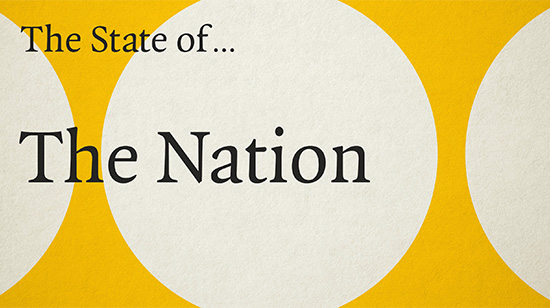‘It’s curable,’ he said
Soon a routine began. A sleeping pill every night gave me rest from about 1 a.m. to 5 a.m. I woke knowing it wouldn’t be long before I heard noises in the corridor; a nurse would come to check my blood pressure and take my temperature. Then someone – often a very glamorous Asian woman – would arrive to take blood that would go to the laboratory. Then – usually between 6.30 and 7 – the oncologist would arrive, turn on the light, and ask me in a soft voice how I was. Early on, I decided that unless I was fully falling apart, I would tell him I was well. I enjoyed adding that there were ‘no issues’. I had never used the word ‘issues’ before. I had heard it used most memorably by an English novelist at a foreign literary festival when he told his publisher that he ‘had issues’ with his bedroom. Now, I could use it every morning if I wanted. It was one of the small compensations for having cancer. More
Was Eliot a Swell?
Very few people will read through all these thousands of pages, and their publication risks making Eliot seem more daunting than ever. While this vast hoard offers scholars all sorts of opportunities, the problem for most common readers is to work out what that word ‘Eliot’ now means. Is ‘Eliot’ still the slim volume of poetry that can be slipped inside a coat pocket? Or does the name now unavoidably bring with it this vast body of letters, plays, poems and prose that can be transported only by fork-lift truck and accessed in full only via a computer in addition to a printed library? Just what the name ‘Eliot’ conjures up has always been a problem. More
What on earth was he doing?
Was Eric Hobsbawm interested in himself? Not, I think, so very much. He had a more than healthy ego and enough self-knowledge to admit it, but all his curiosity was turned outward – towards problems, politics, literatures, languages, landscapes. Never without a book, whether bound for a tutorial or the local A&E;, for decades he disappeared off for tramping holidays or conferences anywhere from Catalonia to Cuba the moment term ended. One friend, on holiday in southern Italy in 1957, saw two men in a field and said to her husband: ‘But look, it’s Eric!’ And, she recalled, ‘it really was Eric, with a peasant. He was interviewing the peasant.’ More
LATEST AUDIO AND VIDEO
AUDIO The State of... the Nation
William Davies and Lorna Finlayson join Joanna Biggs and Tom Crewe to discuss the state of the UK in the age of Brexit. Listen »
VIDEO Defying Gravity
In his LRB Winter Lecture, Adam Tooze examines an alternative, counterintuitive vision of America. Watch »






